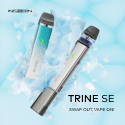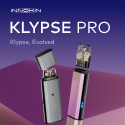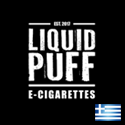Author: Bill Tarling
VAPING NEWS: FDA [Vape & Tobacco Products PMTA Study Guidelines]
“This draft guidance is intended to help applicants (or “you”) design and conduct tobacco product perception and intention (TPPI) studies that may be submitted as part of a modified risk tobacco product application (MRTPA), a premarket tobacco product application (PMTA), or a substantial equivalence report (SE Report). TPPI studies are studies that can be used to assess, among other things, individuals’ perceptions of tobacco products, understanding of tobacco product information (e.g., labeling, modified risk information), and intentions to use tobacco products. It is possible for a TPPI study to also include an actual use component (e.g., an actual product utilized in a simulated use setting or a real environment of use); however, a discussion of actual use research is beyond the scope of this draft guidance. This draft guidance addresses the following scientific issues for applicants to consider as they design and conduct TPPI studies to support tobacco product applications”
ARTICLE LINK:
Principles for Designing and Conducting Tobacco Product Perception and Intention Studies
VAPING NEWS: AUSTRALIA [Call For Personal Vaping Testimonies]
“The Australian Tobacco Harm Reduction Association (ATHRA) has put out a call to Aussie vapers to send in a personal testimony to the Senate Inquiry into Tobacco Harm Reduction by 5 November 2020. ATHRA says this is “the most important” call they’ve ever put out and tells vapers down under that “it is vital that you write a personal submission”. Unusual for a consultation exercise, The Inquiry has expressly requested personal anecdotal evidence from users of vape products. We have never seen the like in Europe, although vapers were and still are encouraged to contact their local MP about vaping and their experience.”
ARTICLE LINK:
VAPING NEWS: EU [SHEER Report Flawed]
“A scientific report on e-cigarettes prepared for the European is fundamentally flawed, according to the Independent European Vape Alliance (IEVA). In its response to the preliminary opinion, IEVA cited several areas of concern:
- The Committee has concluded that there is insufficient evidence that e-cigarettes are not a useful tool for smokers seeking alternatives, despite quoting two randomized control trials stating precisely the opposite.
- In its risk assessment, the Committee has not taken a risk-based approach at all, but rather a hazard-based approach. It states the potential risks of using e-cigarettes without even attempting to compare these with the risks from cigarette smoking, which are exponentially higher.
- The Committee has concluded that there is strong evidence that e-cigarettes act as a “gateway” to smoking. However, it has done so based almost exclusively on data from the United States, where an entirely different regulatory regime exists. The Committee also fails to acknowledge that smoking among young people has declined significantly: if vaping leads to smoking, then why are there not more smokers observed during the period where the e-cigarette market grew rapidly?”
ARTICLE LINK:
VAPING NEWS: REGULATE VAPING AND E-CIGARETTES FAIRLY
“The hype of the past few years around nicotine delivery systems such as vapes and e-cigarettes has overshadowed the fact that it is inhaling smoke from burning tobacco, not nicotine, that causes most smoking-related cancers. Electronic vapour products (EVPs) were developed as a tobacco harm reduction tool and offer an alternative way to consume nicotine without the smoke produced through the burning of tobacco. Hype and ignorance about EVPs persists, however, even among those involved in public health legislation. This is despite increasing international research in support of EVPs. A letter from the US office of the attorney general in the Iowa department of justice to the Food and Drug Administration’s director of the Centre for Tobacco Products in March 2020 addressed an erroneous FDA statement suggesting that smoking and vaping posed an equal risk to users during the Covid-19 pandemic. The letter challenging the FDA was signed by the attorney general and 12 academics and researchers in public health from across the US, Canada and the European Union.”
ARTICLE LINK:
VAPING NEWS: NEW NICOTINE ALLIANCE [Brexit Reforms]
“The New Nicotine Alliance has written to Jo Churchill (public health minister) and Munira Mirza (director of the No 10 Policy Unit) calling for some sensible reforms once Britain is no longer tied to EU rules next year.”
ARTICLE LINK:
Some sensible and realistic Brexit reforms
“The New Nicotine Alliance, a charity championing the nicotine consumer’s voice, and world renown tobacco harm reduction advocate Clive Bates have written to Jo Churchill, the Parliamentary Under-Secretary of State at the Department of Health and Social Care, to suggest post-Brexit tobacco and nicotine policy reforms.”
ARTICLE LINK:
ARTICLE LINK: UK NAVY [Smoking Banned, Vaping Permitted]
“The Royal Navy is implementing a ‘tobacco-free’ policy from January, with the aim of the British military being smoke-free by 2022. From the start of 2021, tobacco products will be prohibited on all submarines and ships – the first step of a phased process. Combustible and chewing tobacco products will be prohibited, while designated vaping areas will aim to support personnel looking to quit – until the end of 2022.”
ARTICLE LINK:
VAPING NEWS: UK [Covid-19 Lockdown]
“The U.K. Vaping Industry Association (UKVIA) expressed disappointment that the U.K. government failed to recognize the vapor sector as an essential business as it announced a new Covid-19 related lockdown. “Whilst we recognize the predicament that the government faces, with data highlighting the worsening coronavirus situation across the country, as an industry we feel extremely disappointed that the vaping sector has once again been overlooked as one providing essential goods and services,” said John Dunne, director general at the UKVIA, in a statement. “The worse thing that we need to avoid happening is people being tempted back to smoking or not trying to quit as a result of the stress caused by this latest development.” Dunne said it would be important for the vapor industry to reopen for business in early December—the target date for the end of the second lockdown—so it can maximize sales in the lead up to the Christmas holiday and and safeguard the thousands of people it employs in the manufacture, wholesale, quality control and retail of vapor products.”
ARTICLE LINK:
VAPING NEWS: IMPACT OF INDIA E-CIG VAPE PRODUCT BAN
“According to Samrat Chowdhery the impact of ban of e-cigarettes in India has been counter productive. With country already facing the healthcare burden the ban on harm reduction alternative has further deteriorated the situation. Prohibition has rarely worked as a measure against preventing use, and comes with unintended consequences, which in the case of India’s e-cigarette ban is also the removal of safeguards to inhibit access for minors who are now being served by a black market and in the absence of self-regulation from a legal industry. Bidis, the most used smoking product and by far the deadliest, which cause nearly a million deaths annually, are hardly taxed and were recently exempt even from pictorial warnings. Prohibition of e-cigarettes, which have proven to be twice as effective than gums in helping smokers quit and can be made at price points even bidi smokers can afford, has further dented efforts to assist Indians in mitigating risks from tobacco use. Given the negative health and economic impact of the e-cigarette ban, and the growing tobacco epidemic in India, a course-correction is much needed.”
ARTICLE LINK:
VAPING NEWS: STOP FORCING MICE TO VAPE
““Horrific” experiments on pregnant mice which are forced to breathe in e-cig flavours have been widely condemned by animal rights campaigners. The National Institutes of Health (NIH) recently awarded biomedical research organisation The Lundquist Institute £1.76m ($2.3m) to research whether vaping while pregnant increases the risk of children having asthma. But the method for testing the pregnant mice – which will be regularly forced into gas tubes for up to two years – has drawn harsh criticism, especially from animal rights group PETA. Dr Andreas Stucki claimed the research money was being “wasted” on ineffective animal tests that will produce findings with limited relevance to humans.”
BILL TARLING — If your read the section from “Research leader Dr Virender Rehan” closely, you’ll notice that he’s not using the research money to “research whether vaping while pregnant increases the risk of children”, but rather that he already has a predetermined conclusion to make the research fit his anti-vaping claims by manipulating his highly funded “research” in order to use his pre-determined findings as he “hopes the findings could change US laws around vaping” [i.e. create more anti-vaping laws]
ARTICLE LINK:
VAPING NEWS: CHINA [Fake JUUL Manufacturer Busted]
“Juul Labs helped Chinese authorities take down a manufacturer that allegedly ripped off its vapes and sold the fakes overseas. Shenzhen Kang Erqiang Electronic Technology Co. — which hawked bogus Juul vape devices and flavor pods under the name Sourvape Technology — sold about $324,000 worth of counterfeit items over a 16-month period starting in 2018, Juul said. The probe led to the August conviction of the Shenzhen factory’s operator, who confessed to his involvement in the scheme and was sentenced to more than three years in prison, Adrian Punderson, Juul’s vice president of brand enforcement said.”
ARTICLE LINK:














 Store
Store












